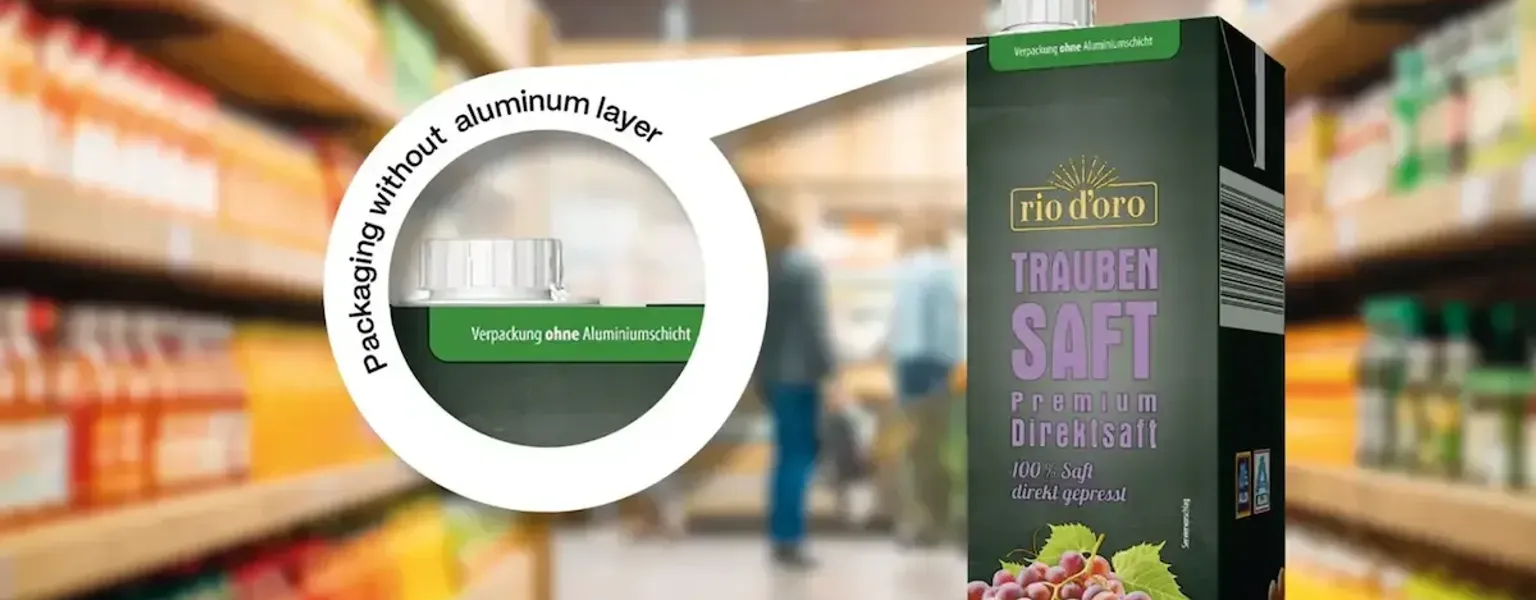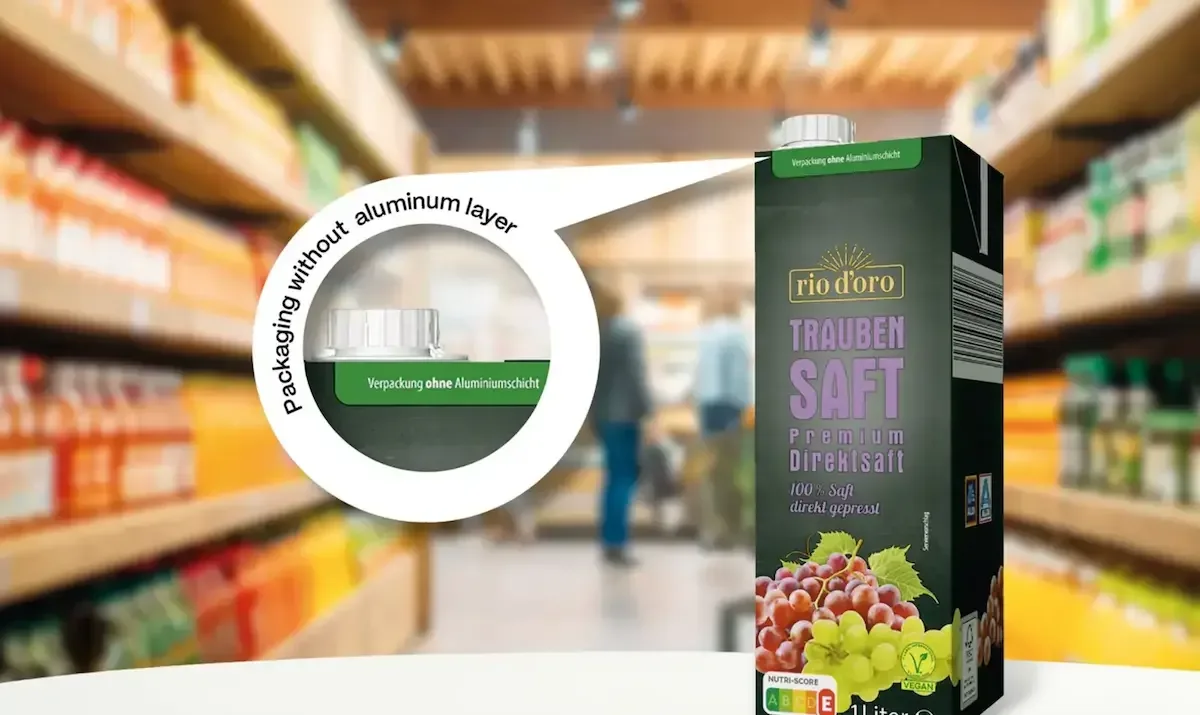Aldi debuts 'world-first' aluminium-free full barrier carton

Sustainability
SIG has introduced what it describes as the world’s first full barrier aseptic carton pack without an aluminium layer, now available in a 1-litre format. The innovation, part of the SIG Terra Alu-free + Full Barrier range, aims to reduce the carbon footprint associated with traditional aseptic packaging.
Following earlier use in single-serve cartons, this marks the first time the aluminium-free material has been applied to the juice category in a multi-serve format. Aldi is the first retailer to launch the new packaging, rolling it out for its Rio d'oro grape juice in selected German stores. According to SIG, the change reduces the carbon footprint of standard multi-serve cartons by 29%.

The packs are produced by Italian manufacturer Quargentan using existing SIG Midi 12 Aseptic filling equipment, requiring only minor modifications. SIG says the new material is compatible with its global network of filling lines and retains the same product protection and 12-month shelf life as its standard cartons. Production speeds remain consistent, with multi-serve formats reaching up to 15,000 packs per hour.
The move to remove aluminium – typically used in aseptic cartons to block oxygen – represents a shift towards more sustainable packaging systems. The SIG Terra Alu-free + Full Barrier material is made from over 80% paper and uses a thin polymer layer to provide protection against oxygen, light, moisture and aroma loss. This simplifies the pack structure from three materials to two and, when combined with forest-based polymers, can lower the carbon footprint of SIG multi-serve cartons by up to 61%, according to company figures.
José Matthijsse, President & General Manager Europe at SIG, said: At SIG, one of our goals is to increase the paper content in our aseptic cartons to at least 90% – including the closure – by 2030, allowing further reduction of carbon emissions, and creating a regenerative food packaging system. On the way there, we have developed this packaging structure that is made of more than 80% paper and reduces the number of raw materials from three to two. This breakthrough innovation has the potential to streamline the recycling process for aseptic cartons, only requiring the separation of paperboard and polymers.
SIG first launched an aseptic carton without aluminium in 2010 for dairy applications and has since sold more than 4 billion aluminium-free packs. The company continues to expand its SIG Terra range as part of broader sustainability efforts within the packaging sector.
Related News
-
Sustainability
Aldi introduces own-label aluminium wine bottle in UK supermarket first
-
Sustainability
Aldi to remove foil sleeves from own-brand wine bottles
-
Business
Corrugated and carton packaging demand rises across Canada
-
Sustainability
Fiat unveils car featuring parts made from recycled beverage cartons
-
Supplier News
Costco to sell planters made from recycled cartons in collaboration with Tetra Pak & Keter




